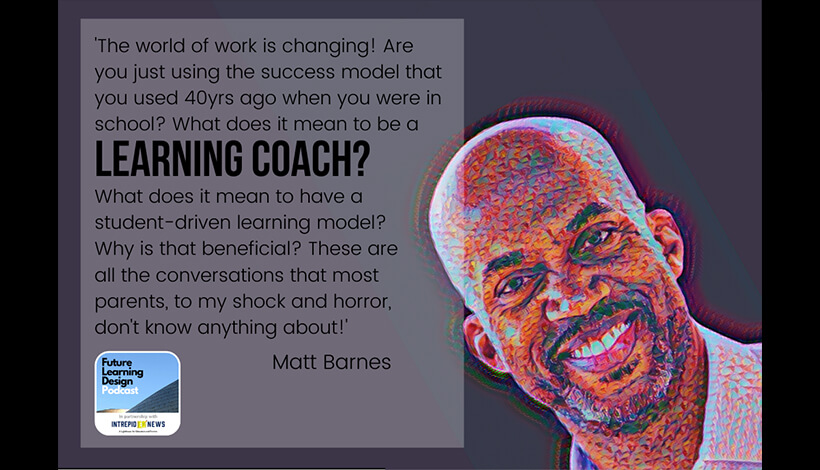Published November 21, 2021 & February 21, 2023
As we leave the house together, masks on, hand in hand, it’s all of a three-minute walk for us as I take my son to school! We realize how lucky we are to live so nearby and not have to endure the stress of a traffic-filled ‘school run’ every morning and afternoon. Every morning in our quartier in Bordeaux where we live (just as across France and elsewhere) parents gather on the street around a (now socially distanced) school doorway, where you hand over your child. Teachers and administrators take over the care and control of your child’s learning until you get them back 8 hours later. Rarely are parents allowed to even cross the threshold, let alone engage in a specific discussion over the direction of their child’s learning.
In my weekly Future Learning Design podcast, I speak with amazing individuals asking big questions about the future of education and schooling. In this episode, I spoke with Matt Barnes, from The Education Game about the role that parents do, could, and should play in the education process.
Matt Barnes:…


